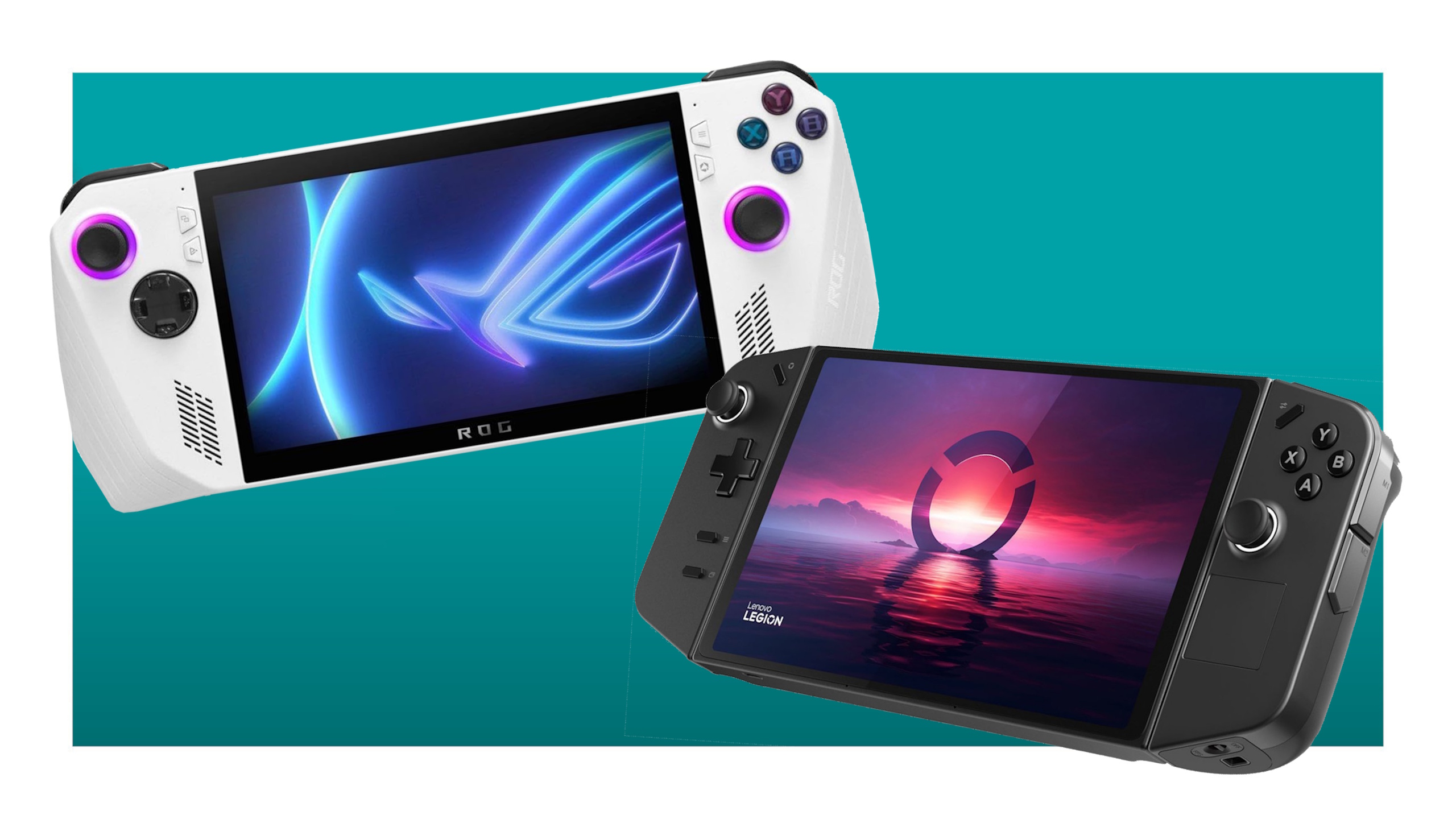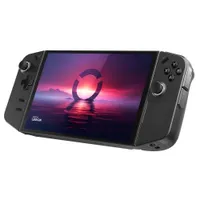Today I'm refereeing the battle of the Prime Day handheld gaming PC deals. Who will win?
Allow me to present deals on the best gaming handhelds out there.

Lenovo Legion Go | AMD Z1 Extreme | 8.8-inch 1080p | 144 Hz | 16GB RAM | 512GB SSD | $699.99 $599.99 at (save $100)
If detachable controllers are your thing, the Legion Go comes with a sweet, 8.8-inch, 2560 x 1600p panel so you can dock it and lean back a little. It's chunky and a little over the top, screen-wise, when it comes to games that require more high-fidelity, but it's a great little machine for storming through your indie game backlog on the go.
Asus ROG Ally | AMD Z1 Extreme | 7-inch 1080p | 120 Hz | 16GB RAM | 512GB SSD | $649.99 $549.99 at Best Buy (save $100)
The most powerful version of one of the best PC gaming handhelds is back at a discounted price. The Asus Ally surprised us at launch with its relatively low MSRP (for a premium Asus product), and now it's even cheaper. Has the time come for you to get in on some handheld gaming action?
So you're opting for a Windows gaming handheld are you? I respect it. Having tried to do literally anything on the Linux based Steam Deck, it's easy to see why you'd swing for the familiarity of Microsoft's sweetheart. But which of the best gaming handhelds are you going to choose? There are only two options when it comes to Windows, frankly: the Lenovo Legion Go, or the Asus ROG Ally.
Both coming from companies known for some of the best gaming laptops around, it's easy to see why their gaming handhelds scored so well in our reviews. But how could you possibly choose between them?
First you've got the Asus ROG Ally, a beautiful, lightweight and snow-white beastie that not only smashes out some impressive gaming performance but does do quietly. And then there's the slightly chunkier Lenovo Legion Go, with its funky detachable controller gimmick and even a larger screen.
- We're curating the best Prime Day PC gaming deals right here.
The main consideration here is what kind of games you're planning to play, and where. Because although the tendency is to reach for the one with the larger panel (bigger = better, right?) it may not be the machine to suit your gaming habits.
To understand why, you have to look at what's underneath. Both machines are powered by the same AMD Ryzen Z1 Extreme, which is effectively a match for the Ryzen 7 7840U processor. It's a great processor, don't get me wrong, but it struggles a little at higher resolutions than 1080p.
So it all boils down to the panel, with the ROG Ally featuring a pretty standard 1920 x 1080 at 7 inches. That's versus the Legion's 2560 x 1600 at 8.8 inches. That difference in resolution and screen size means its going to be a little harder for the Legion Go to reach its 144Hz refresh rate with the same processor... especially when it comes to more modern, high-fidelity games.
What all this means is that you're more likely to get the most out of your Legion Go if you're planning to play the less intensive indie titles on it. Otherwise you'll likely end up turning the settings down anyway, and wasting those extra pixels.
On the other hand, if you're not too worried about being able to detach your controllers the ROG Ally is an absolute joy to use. It feels great in the hands, and is much less bulky. And you don't have to mess with the settings as much when you want to play the more intensive games in your Steam library.
I'd say the ROG Ally is the better buy, especially at just $550. It makes an already great budget gaming handheld much more palatable for those watching their wallet.
Keep up to date with the most important stories and the best deals, as picked by the PC Gamer team.

Having been obsessed with game mechanics, computers and graphics for three decades, Katie took Game Art and Design up to Masters level at uni and has been writing about digital games, tabletop games and gaming technology for over five years since. She can be found facilitating board game design workshops and optimising everything in her path.



